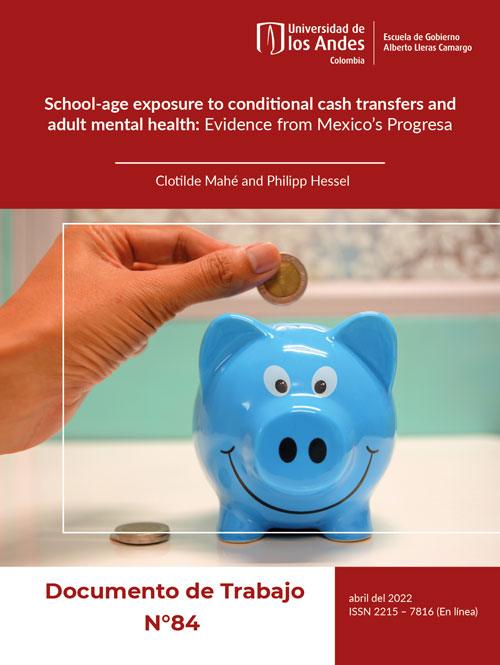School-age exposure to conditional cash transfers and adult mental health: Evidence from Mexico’s Progresa
Conditional cash transfer (CCT) programs have been shown to improve human capital and mental health in the short-run. However, it remains unclear whether those effects are long-lasting. Using data from Mexico, we test whether school-age exposure to the Progresa CCT program affects adult mental health. We exploit variation in the timing of the introduction of Progresa across municipalities before the program rollout, and compare adult mental health outcomes of cohorts that were differently exposed to Progresa transfers during expected schooling ages (5-17). Despite instrumental variables estimates not being significant in the full sample, they reveal strong heterogeneity in the effect of Progresa exposure during schooling ages on adult mental health. A one standard deviation (SD) increase in per capita Progresa transfers in schooling ages implies a 1.64 and 1.87 percentage point decrease in self-reported mild anxiety among male and urban respondents during adulthood, respectively, equivalent to 0.08 and 0.07 SD effects, and a 0.69 (0.48) percentage point decrease in self-reported (severe) depression in rural areas, corresponding to a 0.06 (0.08) SD effect. In the longer term, Progresa exposure is also associated with more years of schooling, greater employability, and better self-rated health, possibly explaining the positive effect of the program on mental health among some groups of individuals.
Autor: Clotilde Mahé, Philipp Hessel

